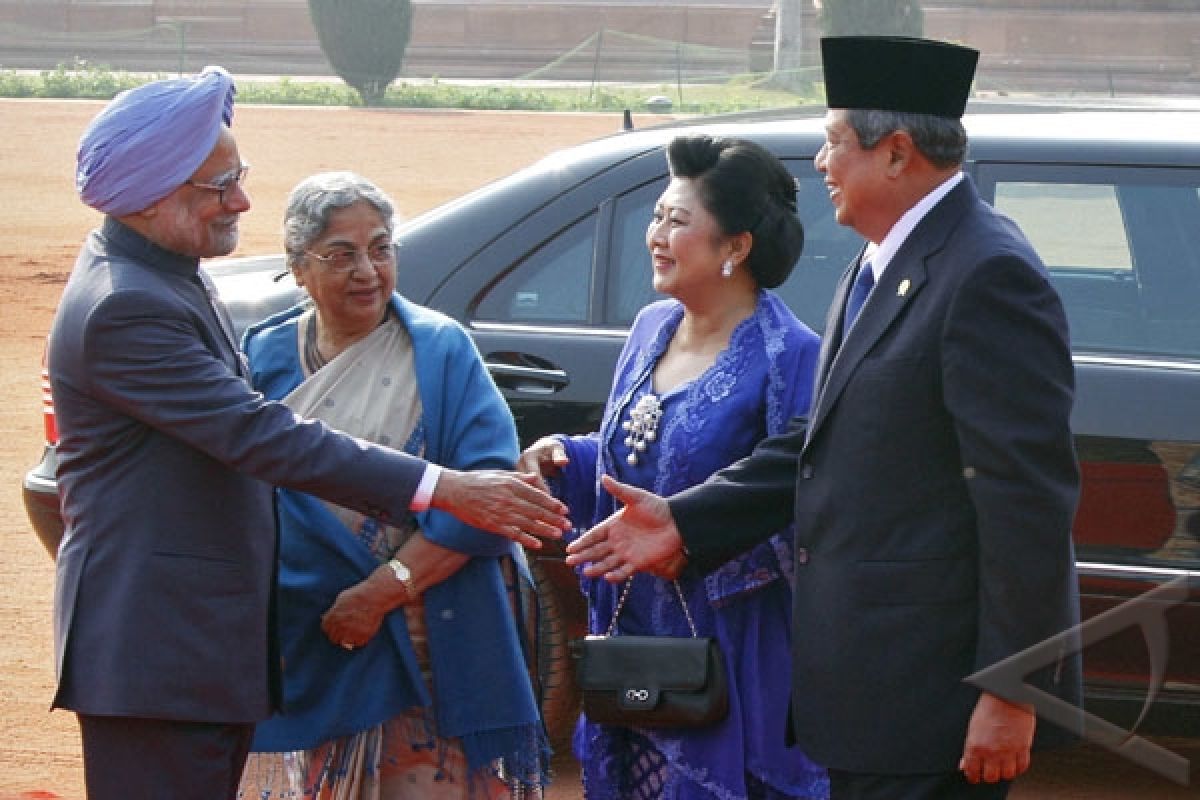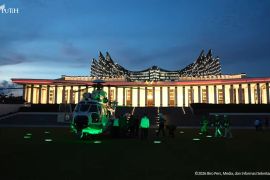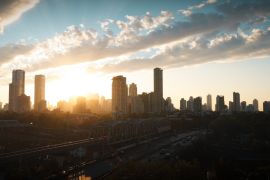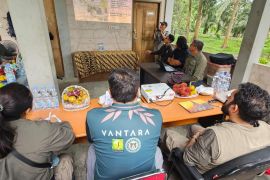If India and Indonesia succeed through democratic methods, we will be the beacon of hope for mankind in the 21st centuryJakarta (ANTARA News) - Indonesian President Susilo Bambang Yudhoyono`s presence as the chief guest for the 61st Republic Day celebrations in New Delhi, India, this year is heartily welcomed by all sections of the Indian population.
President Yudhoyono was welcomed at a state ceremony by his Indian counterpart Shrimati Pratibha Devisingh Patil at the Rashtrapati Bhavan presidential palace in the Indian capital on Tuesday.
After the ceremony, the Indonesian head of state said he appreciated the invitation as the guest of honor at India`s Republic Day Celebrations and hoped his visit would result in new economic cooperation opportunities.
On Wednesday, January 26, 2011 in New Delhi, Yudhoyono attended the Republic Day of India, a holiday marking the creation of the Constitution of India to replace the Government of India Act 1935 as the country`s governing document on January 26, 1950.
The New Indian Express in its official website said Indonesia has always evoked fond memories in Indian minds because geographic contiguity, shared cultural heritage, being comrades in the struggle against long spell of imperialism, and population and economic potentials have led to the forging of close bonds between the two countries during recent years.
"Yodhoyono is not the first Indonesian head of state to be the Republic Day celebrations chief guest. On January 26, 1950, the chief guest was President Sukarno. When Rajendra Prasad and Sukarno drove down from Vijay Chowk to the saluting base in the Rajpath, there was wild cheering and unprecedented display of popular enthusiasm," the New Indian Express said.
It said Sukarno was extremely effusive in acknowledging his indebtedness to India for mobilizing international opinion.
"The strong cultural links between the two countries provided a solid foundation for forging close political links," the Express said.
According to the Express, the strong cultural links could be seen in the Indianised kingdoms like Sri Vijaya, Sailendra, Kediri, Singosari and Majapahit; the familiar Indian words in Bahasa Indonesia; architectural monuments like Borobudur and Lara Jonggrang; the literary masterpieces like Arjuna Vivaha, Bharata Yuddha and Amaramala; the Wajang Kulit (shadow play) based on Ramayana and Mahabharata themes; the living Hindu traditions in Bali - all bear testimony to the pioneering zeal of Indians and the assimilable qualities of Indonesians.
Therefore, Yudhoyono`s visit should lead to the building of more bridges of understanding between the two largest democracies of Asia, who are struggling to maintain their secular traditions against heavy odds.
"If India and Indonesia succeed through democratic methods, we will be the beacon of hope for mankind in the 21st century," the New Indian Express said.
Meanwhile, Deccan Herald in its official website also said President Yudhoyono`s Indian trip was intended to give a boost to
India`s "Look East" policy, underscoring the need for greater integration and deeper engagement between India and East Asia in trade and other strategic sectors.
Prime minister Manmohan Singh, who had traveled to Japan and Malaysia for bilateral visits and to Vietnam for the 8th Asean-India summit last November, has made it clear that his government`s foreign-policy priority will be East and Southeast Asia, which are poised for sustained growth in the 21st century.
"The basis of India-Indonesia partnership dates back to the founding fathers of these two nations, Jawaharlal Nehru and Sukarno, who offered a distinct foreign policy world view that drew on their shared colonial experiences," Deccan Herald said.
It said Nehru and Sukarno visualized an Asian region that could challenge the cold war threat perceptions of the two superpowers. Nehru and Sukarno were among the founder members of the Non Aligned Movement.
In the contemporary context, the rise of China has drawn the two states of Indonesia and India closer.
"The last few years have witnessed a new phase in this relationship where the two states have pushed their ties to a historic high with strong emphasis on economic and security issues," Herald said.
India has decided to substantially enhance its presence in the region while Indonesia took the lead in bringing India closer to the Asean, according to the paper.
The changing strategic landscape of Asia during the post cold war era has broadened the canvas of India`s engagement with Indonesia.
Both want to seize the opportunities being offered by the landmark economic growth being witnessed by the Asian region.
Following the signing of the India-Asean free trade agreement last year, the economic engagement between the two is growing rapidly an will gain further momentum.
According to the paper, Indonesia was an important source of energy and raw materials for India, while bilateral trade exceeded the target set by the two states in 2010 of $10 billion.
Major Indian companies, including the Birla group, the Tatas, Essar, Jindal Steel, Bajaj Motors, are now operating in Indonesia.
Indian investment is spread across a range of areas including banking, mining, oil and gas, iron and steel, aluminum, IT, textiles and telecommunications.
During President Yudhoyono`s visit, Indonesia and India on Tuesday signed 11 memorandums of understanding (MoUs) in various fields as part of efforts to implement comprehensive cooperation they declared in 2005.
The MoUs were signed by the ministers of the two countries in the presence of President Yudhoyono and Indian Prime Minister Manmohan Singh following their bilateral talks at Hyderabad House in New Delhi.
The MoUs include cooperation agreement on extradition and mutual legal assistance signed by Indonesian Foreign Minister Marty Natalegawa and Indian External Affairs Minister Shri SM Krishna.
The other MoUs deal with trade, education, oil and gas, maritime affairs and fisheries, science and technology, micro, small and medium businesses, air transportation, and development of urea fertilizer plants in Indonesia.
The MoUs also include cooperation agreement between the Press Councils of the two countries.
Marty said the signing of 11 MoUs was part of the efforts to realize strategic partnership the two countries declared in 2005.
"Whatever criteria we are using now, be they are in the fields of trade, investment, people-to-people relations, political relations and so forth, the two countries have very close and friendly relations and now we can see the concrete results of the close relations," he said.
He said relations between the two countries should be seen not only from bilateral context but also from regional context as both of them were democratic nations in the Asia-Pacific region.(*)
O001/HAJM/f001
Reporter: Otniel Tamindael
Editor: Jafar M Sidik
Copyright © ANTARA 2011









